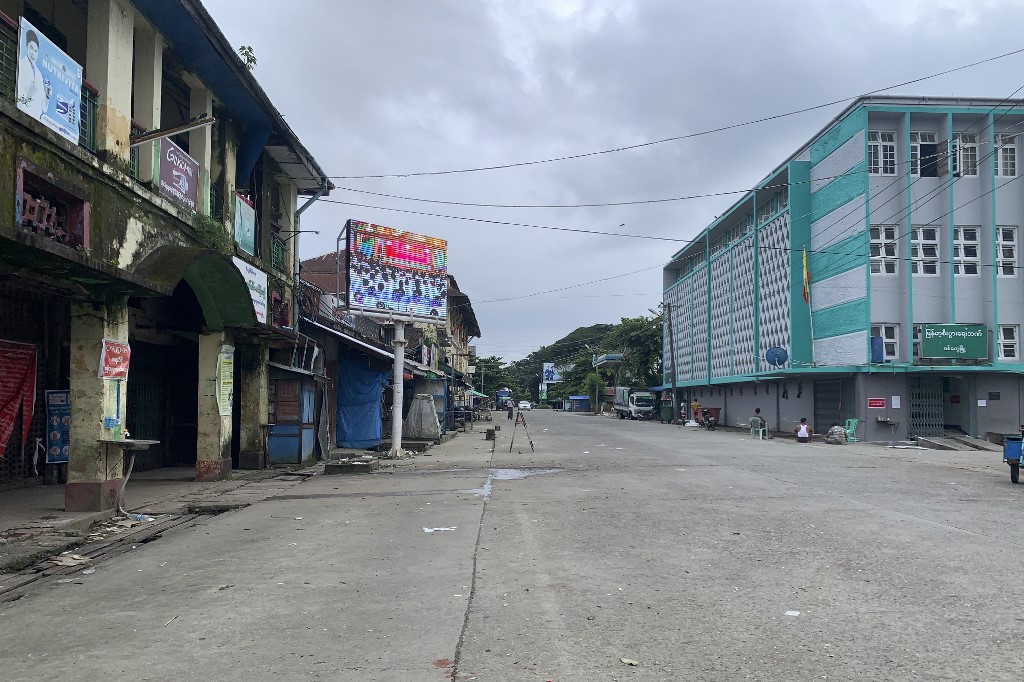
Myanmar expanded a lockdown in conflict-wracked Rakhine state to cover four more townships on Wednesday, halting the movement of about 1 million people as the number of coronavirus cases climbs steadily.
One hundred new infections were confirmed across Myanmar in the last 24 hours—bringing the total to 574—with the northwestern state registering the bulk.
Rakhine is one of the poorest states in the country, with substandard healthcare facilities and a lack of access to education in some remote parts.
It is also home to about 130,000 Rohingya Muslims displaced by conflict and confined to camps under what Amnesty International describes as "apartheid" conditions.
Another 150,000 displaced ethnic Rakhine are scattered across the state having fled clashes between Myanmar's military and ethnic Rakhine insurgents.
State capital Sittwe has been under lockdown and an overnight curfew since the weekend, and on Wednesday the order was extended to four townships elsewhere—Kyaukphyu, An, Taungup and Thandwe.
"People from the said four townships... are to stay only in their homes," said the order published in state-run newspaper Global New Light of Myanmar, adding that only authorised vehicles would be allowed to provide transport.
Exceptions include civil servants and factory workers, and only one member of each household may step out for essential shopping.
The sharp jump in coronavirus cases comes as the country prepares for elections, raising concerns that the November 8 poll date could be impacted.
Rakhine state has long been a flashpoint for ethnic and religious conflict.
Sittwe is home to more than 318,000 ethnic Rakhine, while the four townships placed under lockdown Wednesday have roughly 560,000 residents, mostly ethnic Rakhine, according to a 2014 census.
But unaccounted for are the many marginalised Rohingya Muslims staying in squalid camps near Sittwe who have long battled for recognition and basic rights like healthcare access.
Further north in the state the military is battling the Arakan Army, a rebel group seeking more autonomy for ethnic Rakhine Buddhists, and violent clashes have left tens of thousands of civilians languishing in displacement camps.
The United Nations announced Wednesday that some of their personnel working in the camps and around Rakhine had tested positive for the virus.
The staff "express their solidarity with the people of Rakhine and everyone affected by COVID-19, a common enemy that does not distinguish between ethnicity or religion", the UN said.
But some locals, like villager Maung Than Tin, remain doubtful that the disease is really spreading so rapidly in remote areas.
"I'll believe it only when I see it with my own eyes," the 40-year-old in Kyaukphyu township told AFP.

